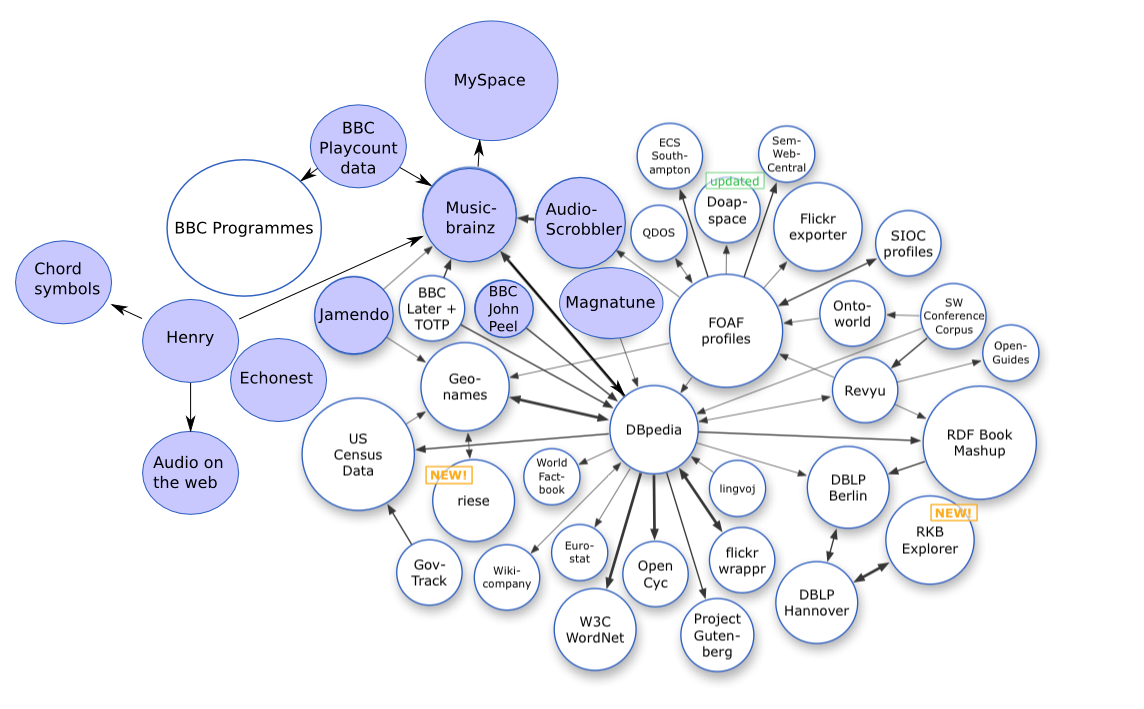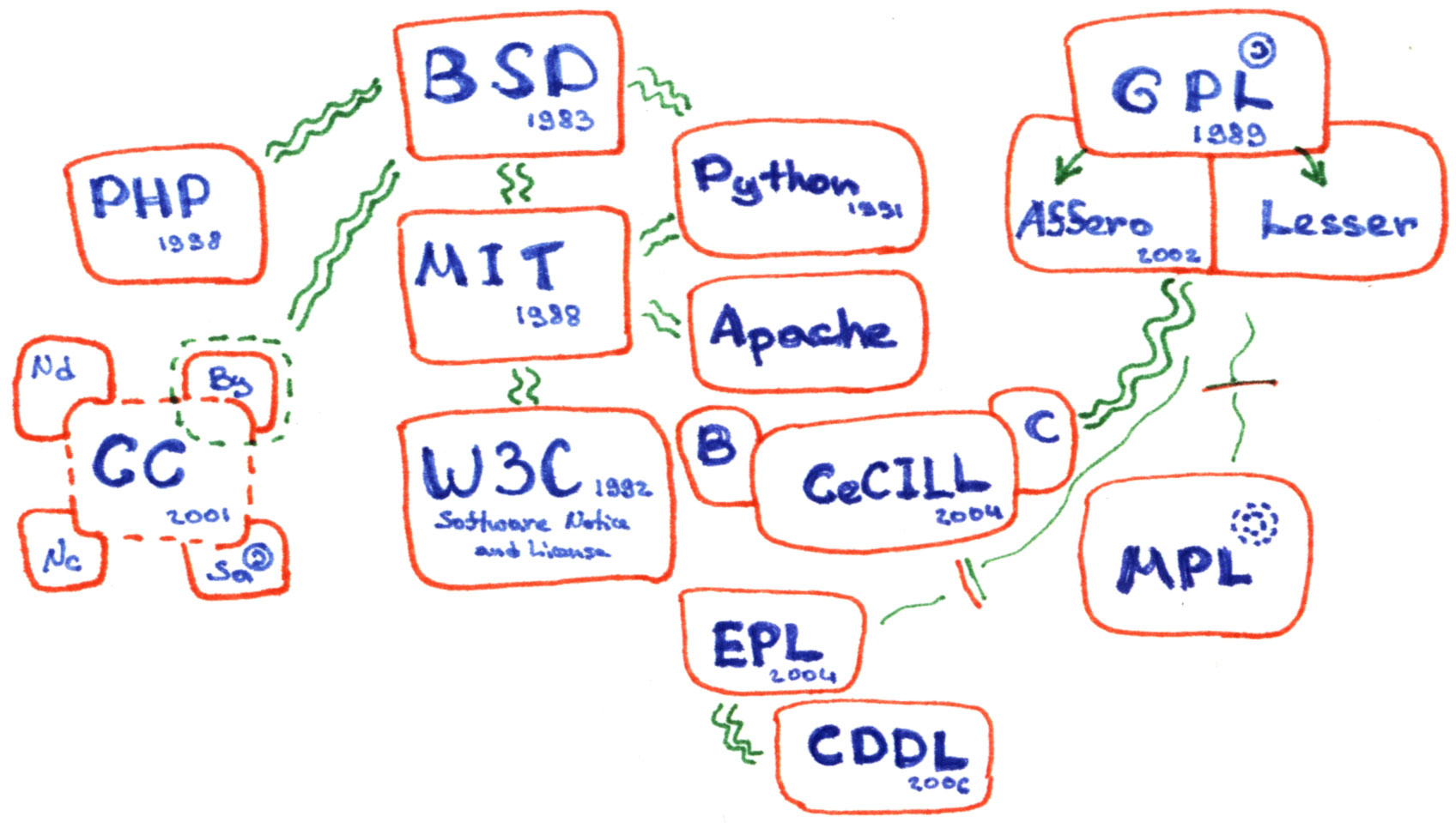|
The Open Definition
The Open Definition is a document published by the Open Knowledge Foundation (OKF) (previously Open Knowledge International) to define openness in relation to data and content. It specifies what licences for such material may and may not stipulate, in order to be considered open licences. The definition itself was derived from the Open Source Definition for software. OKI summarise the document as: The latest form of the document, published in November 2015, is version 2.1. The use of language in the document is conformant with RFC 2119. The document is available under a Creative Commons Attribution 4.0 International License, which itself meets the Open Definition. History * August 2005: Circulation of the first draft of the Open Definition, v0.1. * July 2006: publication of v1.0 * November 2009: publication of v1.1 * October 2014: publication of v2.0 * November 2015: publication of v2.1 See also * Berlin Declaration on Open Access to Knowledge in the Sciences and Hum ... [...More Info...] [...Related Items...] OR: [Wikipedia] [Google] [Baidu] |
Open Content Blue
Open or OPEN may refer to: Music * Open (band), Australian pop/rock band * The Open (band), English indie rock band * ''Open'' (Blues Image album), 1969 * ''Open'' (Gotthard album), 1999 * ''Open'' (Cowboy Junkies album), 2001 * ''Open'' (YFriday album), 2001 * ''Open'' (Shaznay Lewis album), 2004 * ''Open'' (Jon Anderson EP), 2011 * ''Open'' (Stick Men album), 2012 * ''Open'' (The Necks album), 2013 * ''Open'', a 1967 album by Julie Driscoll, Brian Auger and the Trinity * ''Open'', a 1979 album by Steve Hillage * "Open" (Queensrÿche song) * "Open" (Mýa song) * "Open", the first song on The Cure album ''Wish'' Literature * ''Open'' (Mexican magazine), a lifestyle Mexican publication * ''Open'' (Indian magazine), an Indian weekly English language magazine featuring current affairs * ''OPEN'' (North Dakota magazine), an out-of-print magazine that was printed in the Fargo, North Dakota area of the U.S. * Open: An Autobiography, Andre Agassi's 2009 memoir Computin ... [...More Info...] [...Related Items...] OR: [Wikipedia] [Google] [Baidu] |
Open Knowledge Foundation
Open Knowledge Foundation (OKF) is a global, non-profit network that promotes and shares information at no charge, including both content and data. It was founded by Rufus Pollock on 20 May 2004 in Cambridge, UK. It is incorporated in England and Wales as a private company limited by guarantee. Between May 2016 and May 2019 the organisation was named ''Open Knowledge International'', but decided in May 2019 to return to ''Open Knowledge Foundation''. Aims The aims of Open Knowledge Foundation are: *Promoting the idea of open knowledge, both what it is, and why it is a good idea. *Running open knowledge events, such as OKCon. *Working on open knowledge projects, such as Open Economics or Open Shakespeare. *Providing infrastructure, and potentially a home, for open knowledge projects, communities and resources. For example, the KnowledgeForge service and CKAN. *Acting at UK, European and international levels on open knowledge issues. People Renata Ávila Pinto joined as the n ... [...More Info...] [...Related Items...] OR: [Wikipedia] [Google] [Baidu] |
Openness
Openness is an overarching concept or philosophy that is characterized by an emphasis on transparency (behavior), transparency and decentralized decision-making, collaboration. That is, openness refers to "accessibility of knowledge, technology and other resources; the transparency of action; the permeability of organisational structures; and the inclusiveness of participation". Openness can be said to be the opposite of closedness, central authority and secrecy. Openness concept Openness has been attributed to a wide array of approaches in very different contexts as outlined below. While there is no universally accepted definition of the overarching concept of openness, a 2017 comprehensive review concludes that: Open terminology can refer to a higher-order concept (e.g. the ‘‘philosophy of openness’’); the nature of resources (e.g. ‘‘open data’’); the nature of processes (e.g. ‘‘open innovation’’); or the effects on specific domains (e.g. ‘‘open ed ... [...More Info...] [...Related Items...] OR: [Wikipedia] [Google] [Baidu] |
Open Data
Open data is data that is openly accessible, exploitable, editable and shared by anyone for any purpose. Open data is licensed under an open license. The goals of the open data movement are similar to those of other "open(-source)" movements such as open-source software, hardware, open content, open specifications, open education, open educational resources, open government, open knowledge, open access, open science, and the open web. The growth of the open data movement is paralleled by a rise in intellectual property rights. The philosophy behind open data has been long established (for example in the Mertonian tradition of science), but the term "open data" itself is recent, gaining popularity with the rise of the Internet and World Wide Web and, especially, with the launch of open-data government initiatives such as Data.gov, Data.gov.uk and Data.gov.in. Open data can be linked data - referred to as linked open data. One of the most important forms of open data is o ... [...More Info...] [...Related Items...] OR: [Wikipedia] [Google] [Baidu] |
Open Knowledge International
Open Knowledge Foundation (OKF) is a global, non-profit network that promotes and shares information at no charge, including both content and data. It was founded by Rufus Pollock on 20 May 2004 in Cambridge, UK. It is incorporated in England and Wales as a private company limited by guarantee. Between May 2016 and May 2019 the organisation was named ''Open Knowledge International'', but decided in May 2019 to return to ''Open Knowledge Foundation''. Aims The aims of Open Knowledge Foundation are: *Promoting the idea of open knowledge, both what it is, and why it is a good idea. *Running open knowledge events, such as OKCon. *Working on open knowledge projects, such as Open Economics or Open Shakespeare. *Providing infrastructure, and potentially a home, for open knowledge projects, communities and resources. For example, the KnowledgeForge service and CKAN. *Acting at UK, European and international levels on open knowledge issues. People Renata Ávila Pinto joined as the n ... [...More Info...] [...Related Items...] OR: [Wikipedia] [Google] [Baidu] |
Open Licence
A free license or open license is a license which allows others to reuse another creator’s work as they wish. Without a special license, these uses are normally prohibited by copyright, patent or commercial license. Most free licenses are worldwide, royalty-free, non-exclusive, and perpetual (see copyright durations). Free licenses are often the basis of crowdsourcing and crowdfunding projects. The invention of the term "free license" and the focus on the rights of users were connected to the sharing traditions of the hacker culture of the 1970s public domain software ecosystem, the social and political free software movement (since 1980) and the open source movement (since the 1990s). These rights were codified by different groups and organizations for different domains in Free Software Definition, Open Source Definition, Debian Free Software Guidelines, Definition of Free Cultural Works and The Open Definition. [...More Info...] [...Related Items...] OR: [Wikipedia] [Google] [Baidu] |
Open Source Definition
''The Open Source Definition'' is a document published by the Open Source Initiative, to determine whether a software license can be labeled with the open-source certification mark. The definition was taken from the exact text of the Debian Free Software Guidelines, written and adapted primarily by Bruce Perens with input from the Debian developers on a private Debian mailing list. The document was created 9 months before the formation of the Open Source Initiative. Definition Open source doesn't just mean access to the source code. The distribution terms of open-source software must comply with the following criteria: # Free redistribution: The license shall not restrict any party from selling or giving away the software as a component of an aggregate software distribution containing programs from several different sources. The license shall not require a royalty or other fee for such sale. # Source code: The program must include source code, and must allow distribution in source ... [...More Info...] [...Related Items...] OR: [Wikipedia] [Google] [Baidu] |
RFC 2119
A Request for Comments (RFC) is a publication in a series from the principal technical development and standards-setting bodies for the Internet, most prominently the Internet Engineering Task Force (IETF). An RFC is authored by individuals or groups of engineers and computer scientists in the form of a memorandum describing methods, behaviors, research, or innovations applicable to the working of the Internet and Internet-connected systems. It is submitted either for peer review or to convey new concepts, information, or, occasionally, engineering humor. The IETF adopts some of the proposals published as RFCs as Internet Standards. However, many RFCs are informational or experimental in nature and are not standards. The RFC system was invented by Steve Crocker in 1969 to help record unofficial notes on the development of ARPANET. RFCs have since become official documents of Internet specifications, communications protocols, procedures, and events. According to Crocker, the doc ... [...More Info...] [...Related Items...] OR: [Wikipedia] [Google] [Baidu] |
Creative Commons Attribution 4
Creative may refer to: *Creativity, phenomenon whereby something new and valuable is created * "Creative" (song), a 2008 song by Leon Jackson * Creative class, a proposed socioeconomic class * Creative destruction, an economic term * Creative director, an occupation * Creative industries, exchange of finance for rights in intellectual properties * Creative nonfiction, a literary genre * Creative writing, an original, non-technical writing or composition * Creative Commons, an organization that deals with public copyright issues * Creative Labs, a brand owned by Creative Technology * Creative Technology Creative Technology Ltd. is a Singaporean multinational technology company headquartered with overseas offices in Shanghai, Tokyo, Dublin, and Silicon Valley (where in the US it is known as Creative Labs). The principal activities of the compa ..., Singapore-based manufacturer of computer products See also * Creativity (other) {{disambiguation ... [...More Info...] [...Related Items...] OR: [Wikipedia] [Google] [Baidu] |
Berlin Declaration On Open Access To Knowledge In The Sciences And Humanities
The Berlin Declaration on Open Access to Knowledge in the Sciences and Humanities is an international statement on open access and access to knowledge. It emerged from a conference on open access hosted in the Harnack House in Berlin by the Max Planck Society in 2003. Background Following the Budapest Open Access Initiative in 2002 and the Bethesda Statement on Open Access Publishing in 2003, the Berlin Declaration was a third influential event in the establishment of the open access movement. Peter Suber has referred to the three events combined as the "BBB definition" of open access as the three overlap with and inform one another. The declaration was drafted at an October 2003 conference held by the Max Planck Society and the European Cultural Heritage Online (ECHO) project. More than 120 cultural and political organizations from around the world attended. Statement The statement itself was published on October 22, 2003. Acknowledging the increasing importance of the inter ... [...More Info...] [...Related Items...] OR: [Wikipedia] [Google] [Baidu] |
Budapest Open Access Initiative
The Budapest Open Access Initiative (BOAI) is a public statement of principles relating to open access to the research literature, which was released to the public on February 14, 2002. It arose from a conference convened in Budapest by the Open Society Institute on December 1–2, 2001 to promote open access which at that time was also known as ''Free Online Scholarship''. This small gathering of individuals has been recognised as one of the major defining events of the open access movement. As of 2021, the text of the initiative had been translated to 13 languages. On the 10th anniversary of the initiative in 2012, the ends and means of the original initiative were reaffirmed and supplemented with a set of concrete recommendations for achieving open access in the next 10 years. Content Initiative The opening sentence of the Budapest Open Access Initiative encapsulates what the open access movement is all about, and what its potential is: Definition The document contains o ... [...More Info...] [...Related Items...] OR: [Wikipedia] [Google] [Baidu] |



